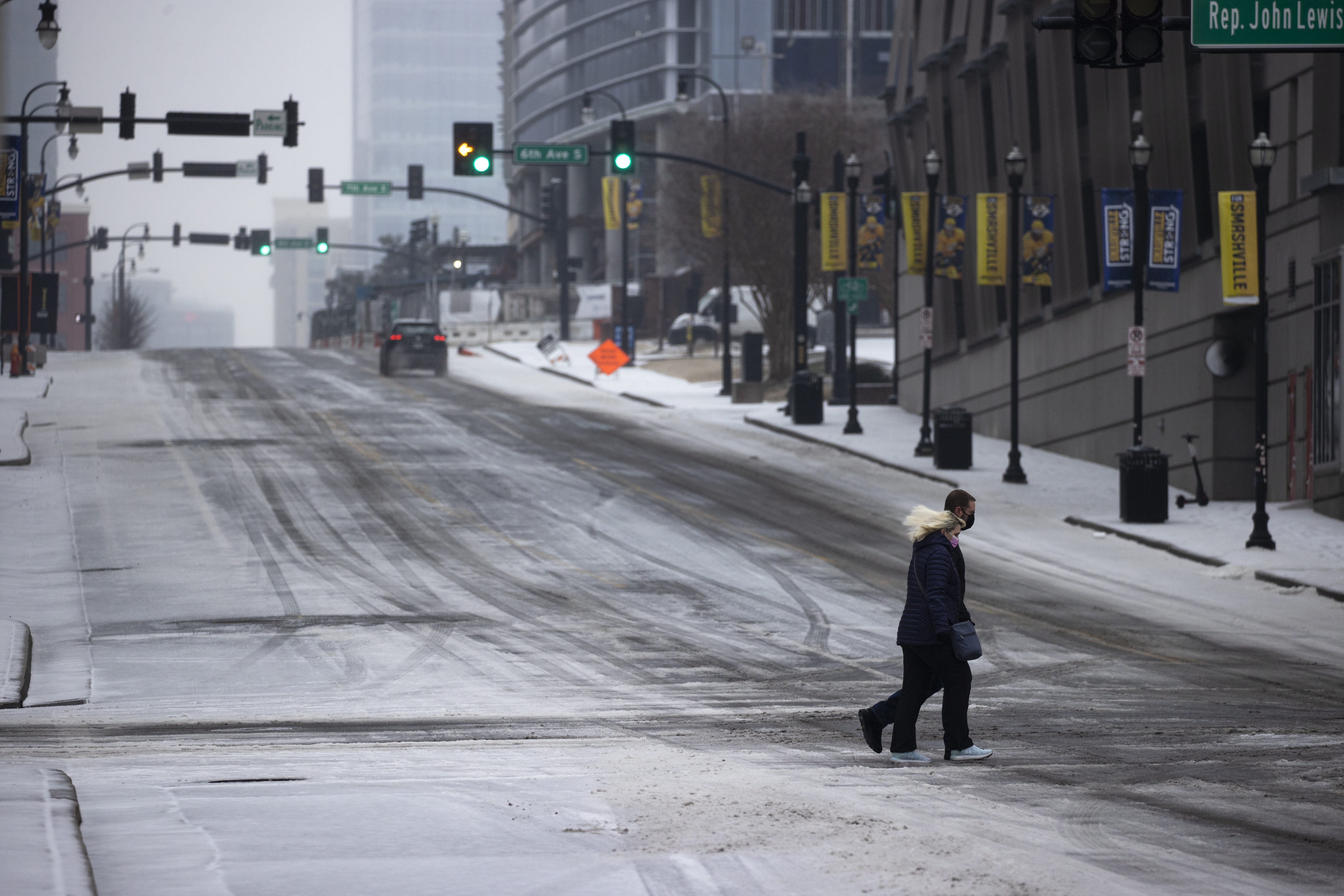Central U.S. is 'the most unusually cold region on the planet' right now


A free daily email with the biggest news stories of the day – and the best features from TheWeek.com
You are now subscribed
Your newsletter sign-up was successful
Record-setting cold weather has paralyzed much of America, bringing freezing temperatures and snow to parts of the country that haven't seen such weather in decades — if ever in modern history.
More than 3 million Americans were without power Monday. The vast majority of those power outages — more than 2.6 million — were in Texas, CNN reports, where freezing temperatures and high demand for heat set off rolling outages. Austin, "the city with palm trees and typically mild weather," was covered with six inches of snow, "an amount not seen since 1966," The New York Times reports.
Texas' power outages can be attributed to "an electricity grid that is independent from surrounding states, low natural gas supplies, along with sky-high prices and reduced output from the state's numerous wind turbines," The Washington Post explains.
The Week
Escape your echo chamber. Get the facts behind the news, plus analysis from multiple perspectives.

Sign up for The Week's Free Newsletters
From our morning news briefing to a weekly Good News Newsletter, get the best of The Week delivered directly to your inbox.
From our morning news briefing to a weekly Good News Newsletter, get the best of The Week delivered directly to your inbox.
In some parts of the country, temperatures were 50 degrees below average, making the central United States "the most unusually cold region on the planet," the Post reports. Oklahoma City, Oklahoma, was bracing for temperatures of -10 Fahrenheit, which would make Monday night the coldest night ever observed. Wind chills hit -40 and -50 in parts of Nebraska, Kansas, and Colorado. "There is the potential for more than 240 cold temperature records to be broken by Tuesday evening," CNN reports.
This is just the first of two major winter storms expected this week. The second is forecast to hit on Wednesday.
A free daily email with the biggest news stories of the day – and the best features from TheWeek.com
Jessica Hullinger is a writer and former deputy editor of The Week Digital. Originally from the American Midwest, she completed a degree in journalism at Indiana University Bloomington before relocating to New York City, where she pursued a career in media. After joining The Week as an intern in 2010, she served as the title’s audience development manager, senior editor and deputy editor, as well as a regular guest on “The Week Unwrapped” podcast. Her writing has featured in other publications including Popular Science, Fast Company, Fortune, and Self magazine, and she loves covering science and climate-related issues.
-
 What to know before filing your own taxes for the first time
What to know before filing your own taxes for the first timethe explainer Tackle this financial milestone with confidence
-
 The biggest box office flops of the 21st century
The biggest box office flops of the 21st centuryin depth Unnecessary remakes and turgid, expensive CGI-fests highlight this list of these most notorious box-office losers
-
 What are the best investments for beginners?
What are the best investments for beginners?The Explainer Stocks and ETFs and bonds, oh my
-
 Nobody seems surprised Wagner's Prigozhin died under suspicious circumstances
Nobody seems surprised Wagner's Prigozhin died under suspicious circumstancesSpeed Read
-
 Western mountain climbers allegedly left Pakistani porter to die on K2
Western mountain climbers allegedly left Pakistani porter to die on K2Speed Read
-
 'Circular saw blades' divide controversial Rio Grande buoys installed by Texas governor
'Circular saw blades' divide controversial Rio Grande buoys installed by Texas governorSpeed Read
-
 Los Angeles city workers stage 1-day walkout over labor conditions
Los Angeles city workers stage 1-day walkout over labor conditionsSpeed Read
-
 Mega Millions jackpot climbs to an estimated $1.55 billion
Mega Millions jackpot climbs to an estimated $1.55 billionSpeed Read
-
 Bangladesh dealing with worst dengue fever outbreak on record
Bangladesh dealing with worst dengue fever outbreak on recordSpeed Read
-
 Glacial outburst flooding in Juneau destroys homes
Glacial outburst flooding in Juneau destroys homesSpeed Read
-
 Scotland seeking 'monster hunters' to search for fabled Loch Ness creature
Scotland seeking 'monster hunters' to search for fabled Loch Ness creatureSpeed Read
